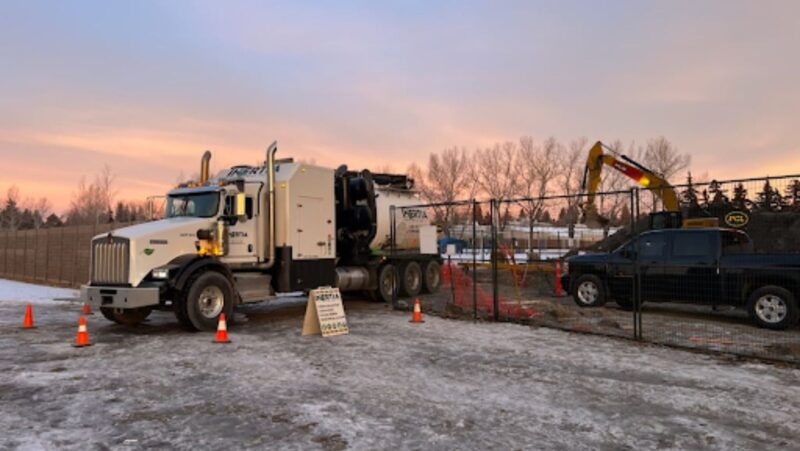
So you’ve inherited a house. Congrats or condolences, depending on the situation. Whether it came with warm memories or unexpected repairs, one thing is clear: selling it quickly and easily is your new mission.
The process might seem overwhelming at first. You’ve got paperwork, potential legal hurdles, and maybe even some family disagreements. And then there’s the actual property, possibly outdated, maybe full of stuff, and certainly not ready for an open house tomorrow.
But here’s the good news: it’s possible to sell that inherited house fast without losing sleep over it. It just takes some know-how and the right approach.
First Step: Make Sure You’re Legally Good to Go
Before you can do anything with the house, you need to confirm your legal authority to sell it. This usually means the property has to go through probate unless it was in a trust or jointly owned with rights of survivorship.
Probate is the court-supervised process of distributing a deceased person’s estate. It can take weeks or months, depending on your state’s laws and whether there are any disputes. While you wait, you can gather important documents, like the will, death certificate, and property deed.
If multiple heirs are involved, you’ll all need to agree on what to do with the house. Open and honest communication is key here. It’s not just about the money; it’s about keeping relationships intact during an emotional time.
Skip the Repairs If You’re Short on Time
Here’s the thing: most inherited homes aren’t move-in ready. They may have outdated kitchens, worn carpets, or a 20-year-old roof that groans every time it rains.
If you’re looking to sell fast, doing a full renovation isn’t your best bet. You’ll spend money and time, and you might not recoup the investment.
Instead, consider selling the house as-is. This means you don’t fix a thing, you hand it off exactly as it stands. Buyers know what they’re getting, and you get to skip the stress of managing contractors and deadlines.
Clean-Out Doesn’t Have to Be a Nightmare
The emotional weight of sorting through a loved one’s belongings is real. Every drawer is a time capsule. Every closet hides a memory.
To make it easier, start small, one room at a time. Decide what to keep, donate, or toss. Hiring an estate clean-out service can also save time and help keep things moving if you’re feeling stuck.

Be prepared for surprises. You might uncover valuables, old documents, or family heirlooms. Take your time with the personal stuff, but remember your goal: getting the house ready for sale.
Choose Your Selling Route Wisely
Not all home-selling paths are created equal when you’re aiming for speed and simplicity. Here are three main ways people sell inherited houses:
1. Traditional Listing
This route can get you top dollar, but it comes with delays. Prepping the house, staging, showings, inspections, and negotiations all take time. If the market’s slow or the house needs work, expect weeks (or months) before you close.
2. FSBO (For Sale By Owner)
Selling it yourself can save on commission fees, but it also means you’re the one handling all the marketing, paperwork, and buyer communication. It’s a full-time job.
3. Direct Cash Sale
For speed and convenience, this is the go-to method. Cash buyers purchase houses as-is and close fast, often in under two weeks. This option is ideal if you’re out of town, pressed for time, or just don’t want the hassle. Additionally, you can simply search “sell my home for cash” online, get great results, shop around, and find the best cash buyer with the best offer.
Avoid Common Mistakes That Slow Things Down
When you’re in a rush, it’s easy to overlook details that can cost you time and money.
Waiting too long to act: The longer a home sits empty, the more it costs you in taxes, insurance, and utilities. Not getting legal advice: Selling an inherited property can come with tax implications. A quick consult with an estate attorney or tax advisor can save you headaches. To avoid surprises, you can estimate potential costs early by using a stamp duty 2025 calculator before finalizing the sale. Underestimating emotional attachment: It’s okay to feel sentimental, but letting emotions delay decisions can stall the process. Choosing the wrong buyer: If you’re going the cash route, work with a reputable company. Not all buyers are equal, so do your homework.
Local Purchasers Can Be a Lifesaver
If you’re hoping to get this sale wrapped up quickly and with minimal drama, connecting with a local, experienced buyer can make all the difference. In some cities, heirs turn to a quick, low-stress home sale option in San Diego as one example of this kind of support. These folks know the market, understand probate complications, and often specialize in buying inherited homes.
One example of a trusted option is Myers House Buyers; they purchase houses in any condition and are known for making the process smooth and straightforward. Local buyers often close faster and can help you skip the red tape that comes with traditional selling.
Keep Your Sanity Through the Process
Selling a house, especially one tied to loss or family, isn’t just a financial move; it’s an emotional one. Give yourself some grace. It’s okay to feel overwhelmed or conflicted.

Take breaks. Celebrate small wins, like getting the first room cleaned out or finalizing the paperwork. And don’t be afraid to ask for help, whether from a realtor, attorney, or house-buying company. You don’t have to do it all alone.
Quick Checklist to Keep You on Track
Here’s a no-nonsense list to make sure you’re covering the key steps:
- Confirm legal authority (probate, will, etc.)
- Gather documents (deed, tax records, insurance)
- Talk with other heirs (if any)
- Clean out personal belongings
- Decide how you want to sell (traditional, FSBO, cash)
- Contact a local buyer if selling as-is
- Close the deal and move on
You’ve Got This
Inheriting a house might not be something you planned for, but handling it doesn’t have to be a burden. With the right steps and a little help, you can sell fast, stay sane, and move forward without dragging it out for months.
Whether you go with a quick cash sale or explore other routes, just know that smoother options exist. You don’t have to go the hard way.












